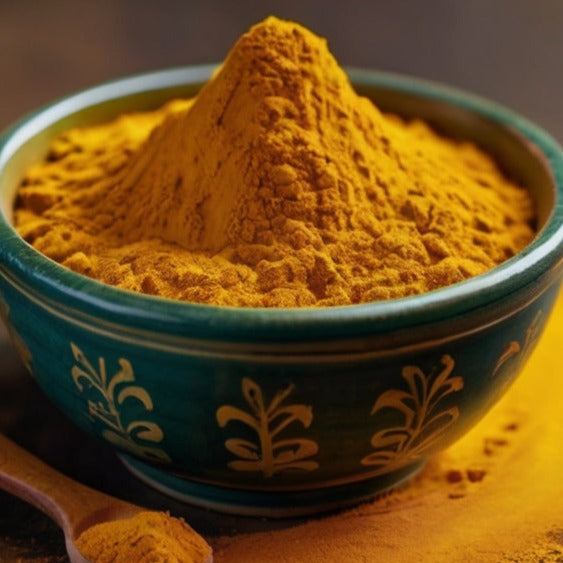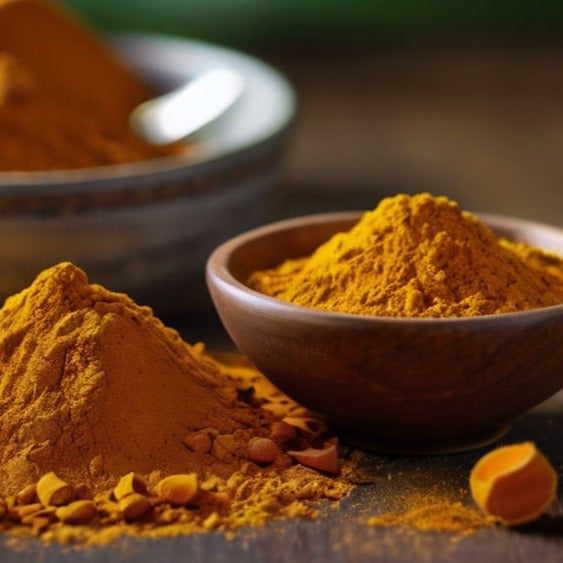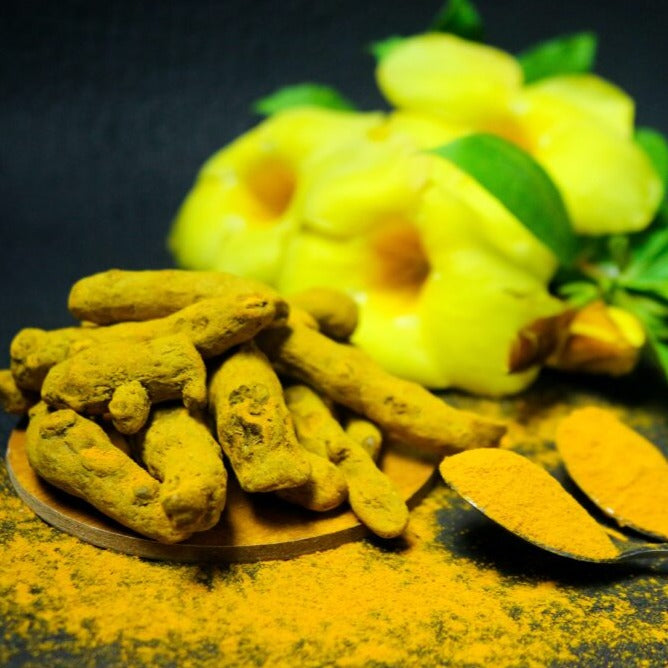


Turmeric, affectionately known as "haldi" in India, is a vibrant spice revered for its culinary and medicinal properties. With its distinctive golden-yellow hue and earthy flavour, it's a staple in Indian cuisine, adding depth to curries and enhancing dishes. Beyond its culinary uses, turmeric holds a significant place in Ayurvedic medicine, valued for its anti-inflammatory and antioxidant qualities. This ancient spice has been cherished for generations, not only for its rich taste but also for its potential health benefits.
Turmeric: The gift of health and wellness
Ingredients
100% pure, high quality turmeric. Free of artificial colours.
How to store it?
Store in a cool, dry place in an airtight container to preserve their freshness.
Benefits of Turmeric:
1. Anti-inflammatory Powerhouse:
Turmeric contains curcumin, a potent anti-inflammatory compound, which helps alleviate inflammation and reduce the risk of chronic diseases like arthritis.
2. Digestive Health Support
Curcumin in turmeric stimulates bile production, aiding digestion and relieving symptoms of indigestion such as bloating and gas.
3. Heart Health Promotion:
Turmeric supports heart health by lowering cholesterol levels, reducing the risk of heart disease, and improving overall cardiovascular function.
4. Immune System Boost
With its antimicrobial properties, turmeric strengthens the immune system, helping the body fight off infections and illnesses more effectively.
FAQs
1. Can turmeric help with joint pain?
Yes, turmeric's anti-inflammatory properties, mainly attributed to curcumin, can help reduce joint pain and improve mobility for individuals suffering from arthritis.
2. Is turmeric safe during pregnancy?
Turmeric is generally considered safe in small amounts as a spice in cooking during pregnancy. However, pregnant women should consult with their healthcare provider before consuming turmeric supplements or in large quantities.
3. How can turmeric be used for skincare?
Turmeric's anti-inflammatory and antimicrobial properties make it beneficial for skincare. It can be used in homemade face masks or added to skincare products to reduce acne, inflammation, and promote overall skin health.
4. Can turmeric interact with medications?
Yes, turmeric may interact with certain medications, such as blood thinners and diabetes medications. It's essential to consult with a healthcare professional before incorporating turmeric into your routine, especially if you're taking medications regularly.




